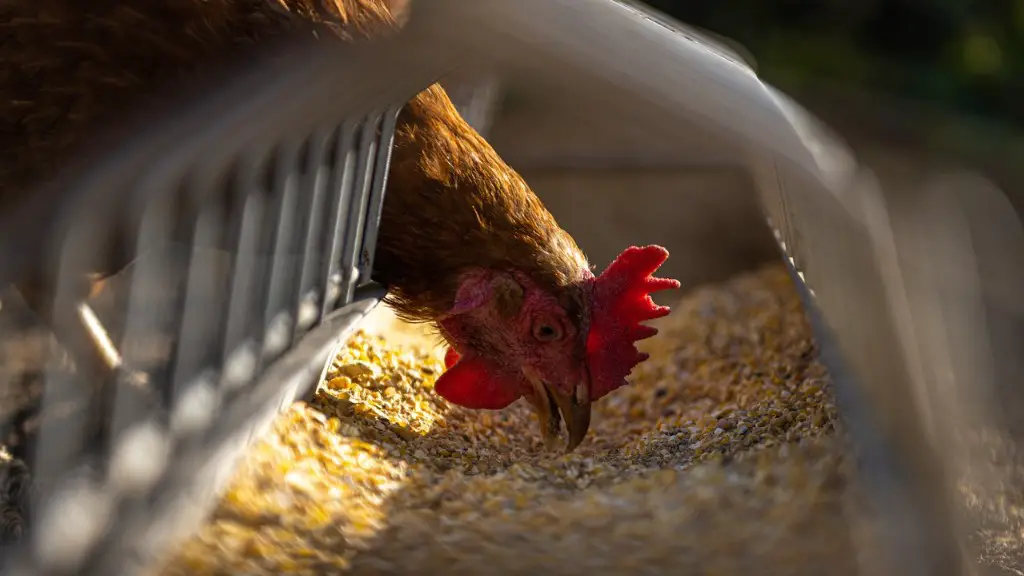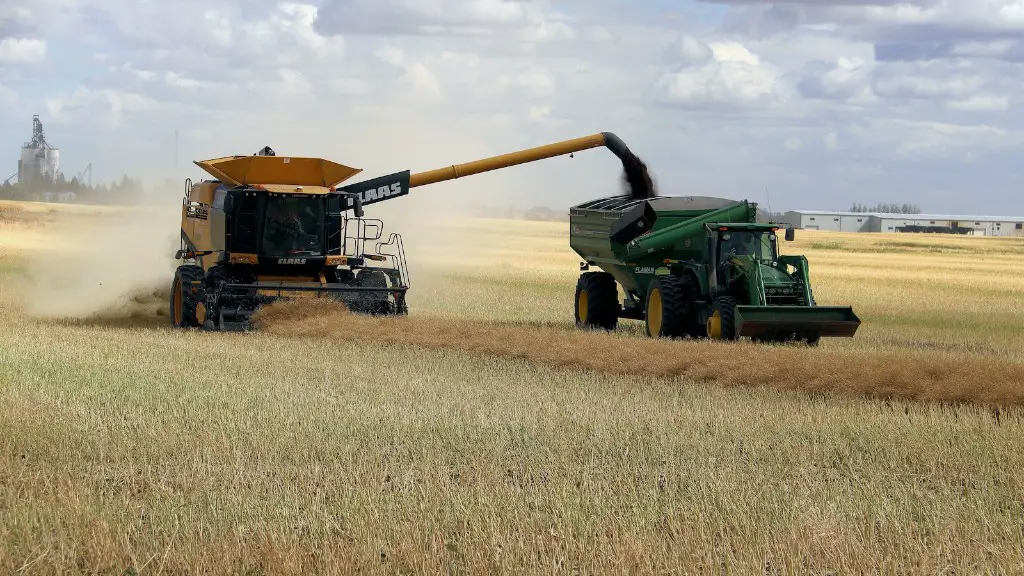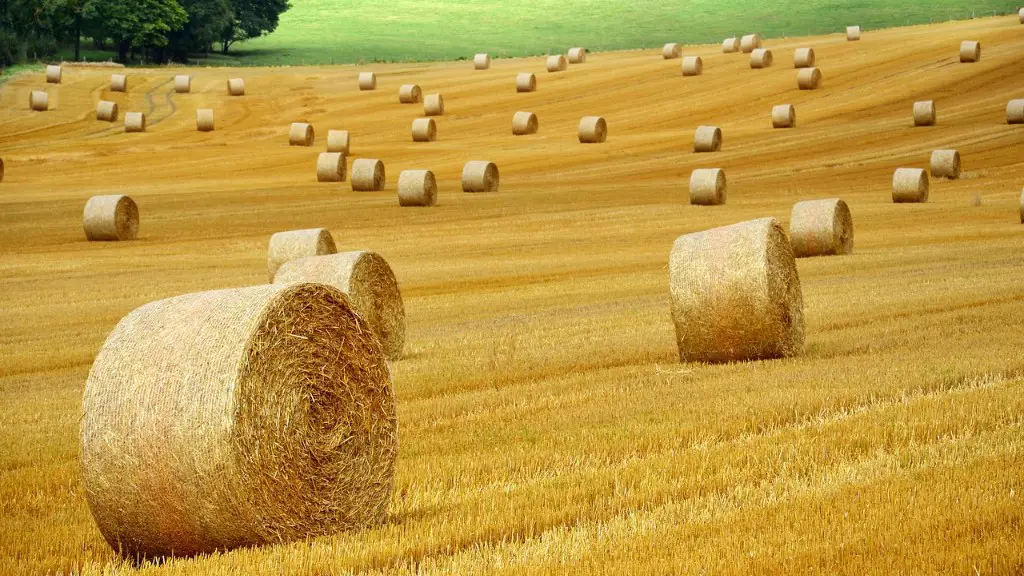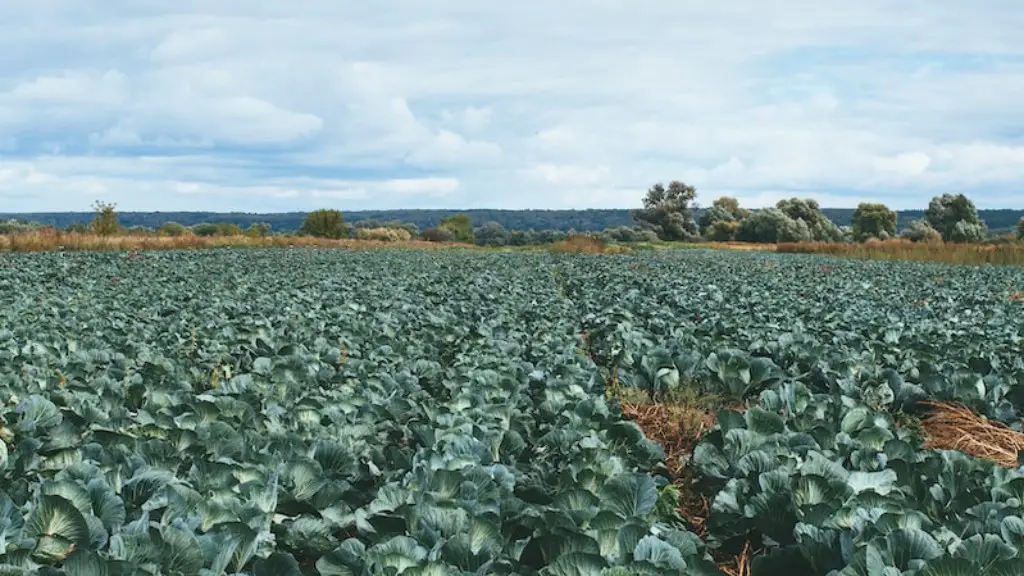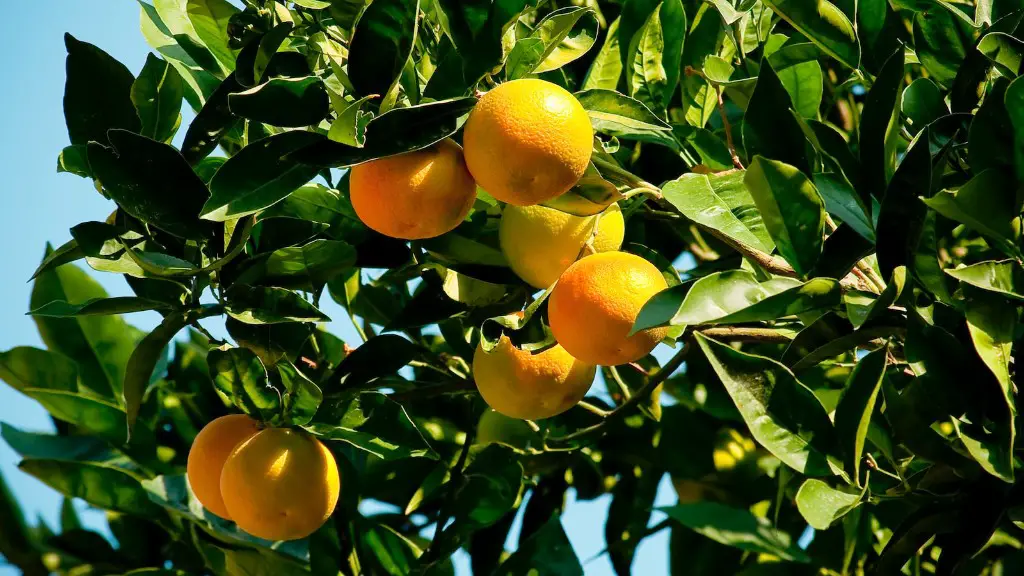Organic agriculture is an ecological production management system that promotes and enhances biodiversity, biological cycles and soil biological activity. It is based on minimal use of off-farm inputs and on management practices that restore, maintain and enhance ecological harmony.
Organic agriculture is an agricultural production system that excludes the use of synthetic inputs such as synthetic fertilizers and pesticides, growth regulators, and livestock feed additives.
What is meant by organic agriculture?
The organic farming system is one that begins to consider potential environmental and social impacts by eliminating the use of synthetic inputs. This includes things like synthetic fertilizers and pesticides, veterinary drugs, genetically modified seeds and breeds, preservatives, additives, and irradiation. The goal is to create a more sustainable and environmentally friendly system of agriculture.
Organic farmers do not use as many antibiotics as factory farmers. They also let their cows and pigs graze on grass instead of grain. These practices help the animals stay healthy and promote sustainable agriculture.
What are the 4 types of organic farming
Organic farming is a method of agriculture that relies on natural processes, rather than the use of synthetic chemicals, to enhance crop growth and yield. The principal methods of organic farming include crop rotation, green manures and compost, biological pest control, and mechanical cultivation.
Organic farmers rely heavily on crop rotation to maintain soil fertility and prevent the build-up of pests and diseases. Green manures and compost are used to replenish soil nutrients and improve soil structure. Biological pest control involves the use of beneficial insects and other natural predators to keep crop-damaging pests in check. Mechanical cultivation is used to control weeds and prepare seedbeds.
Organic farming practices can differ significantly from one farm to another, and even from one field to another on the same farm. However, all organic farmers share a common commitment to producing food in a way that is environmentally sustainable and respectful of the rights of farmers, workers, and consumers.
Organic farming is a great way to help reduce environmental pollution and greenhouse gas emissions. By severely restricting the use of manufactured chemical fertilisers and pesticides, organic farming helps to reduce the amount of fossil fuels that are burned. This not only helps to protect our environment, but also helps to improve the quality of our food.
What are the 3 types of organic farming?
Organic farming is a type of agriculture that focuses on producing food without the use of synthetic chemicals. This includes the use of natural fertilizers and pest control methods. Organic farming can be divided into two types: integrated organic farming and pure organic farming. Integrated organic farming is a type of farming that uses both organic and conventional methods. This type of farming combines the best of both worlds in order to produce food more efficiently. Pure organic farming is a type of farming that only uses organic methods. This type of farming is more labor-intensive and often results in lower yields.
Organic farmers use natural fertilizers, where crop rotation improves soil fertilization and the soil remains fertile Inorganic farming land and soil degrade over time because of the use of artificial pesticides and the soil becomes infertile due to exploitation.
Is organic agriculture better for farmers?
Organic agriculture is important for many reasons. It is a more sustainable way of farming that helps to preserve our natural resources. It also reduces the risks of human, animal, and environmental exposure to toxic materials.
Organic produce may have more of certain antioxidants and types of flavonoids, which have antioxidant properties. Omega-3 fatty acids are also thought to be more prevalent in organic produce. Studies have shown small to moderate increases in some nutrients in organic produce, so it is possible that there are benefits to eating organic fruits and vegetables.
What are the benefits of organic farming
Organic farming is increasingly becoming popular as it offers a number of advantages over conventional farming. These advantages include reduced use of pesticides, decreased soil erosion, reduced nitrate leaching into groundwater, and recycling of animal wastes back into the farm. While these benefits are significant, they are offset by higher food costs for consumers and lower overall yields.
The methods of irradiation, sewage sludge, and genetic engineering are all expressly prohibited from being used when growing or processing organic foods. These methods are considered to be harmful to the environment and to the organic food itself. organic foods are grown without the use of these methods, and are processed without the use of chemicals or other synthetic materials.
What are the problems of organic farming?
Organic farming has a number of disadvantages when compared to conventional farming methods. First, organic food is generally more expensive because farmers do not get as much out of their land as conventional farmers do. Second, production costs are higher because farmers need more workers. Third, marketing and distribution is not as efficient because organic food is produced in smaller amounts.
Carbon crops play an important role in sustainable agriculture by promoting soil fertility and providing a vital component for compost to feed calorie crops. In general, it is recommended to plant carbon crops in 60% of the total planted area. Some examples of carbon crops include maize, sorghum, amaranth, quinoa, millet, rye, wheat, barley, rice, oats, and sunflowers.
What is the main focus of organic farming
Organic farming is a holistic production management system that promotes and enhances bio-diversity, soil fertility and ecological balance. It is based on minimal use of off-farm inputs and on management practices that restore, maintain and enhance ecological harmony.
In organic farming, crop rotation, green manures and cover crops, compost and biological pest control are used to maintain soil productivity and control pests, while diversification of species and breeds is used to enhance bio-diversity and natural balance.
Organic agriculture has been practiced in India since ancient times. The modern organic movement in India started in the late 1940s with the formation of the Indian Society of Natural Soil and Manure Conservationists. Since then, many farmers, NGOs, research institutions and state governments have been working together to promote and spread organic farming in India.
Organic farming has become popular in recent years as more and more people become concerned about the dangers of pesticides and other chemicals used in traditional farming. Organic farming is a form of agriculture that relies on natural processes, rather than on synthetic inputs, to enhance crop production. There are numerous advantages of organic farming, including the following:
It helps to maintain environmental health by reducing the level of pollution.
It decreases human and animal health hazards by reducing the level of residues in the food product.
It helps in the cost of agricultural production at a sustainable level.
Organic farming is also beneficial for the farmers as it helps to build their soil health, increases crop diversity, and creates a sustainable framework for long-term success.
What methods do organic farmers use?
Organic crop producers rely on adding compost, animal manures, or green manures to build soil quality. Soil organisms break down these inputs and convert nutrients into forms plants can absorb. This process also creates humus, which helps to sustain soil quality. However, organic producers cannot apply sewage sludge or biosolids to soil.
Organic farms require more land to produce the same amount of crops as compared to those that use synthetic fertilizers. This is because they need to allow for more room for crop rotation and other land management practices that are necessary for organic farming. As a result, the demand for farmland is increasing, which leads to deforestation.
Conclusion
Organic agriculture is defined as an ecological production management system that promotes and enhances biodiversity, ecological balance, and natural ecosystem services.
Organic agriculture is a form of farming that relies on techniques such as crop rotation, green manure, and compost to maintain soil productivity and control pests, rather than using synthetic fertilizers and pesticides.
